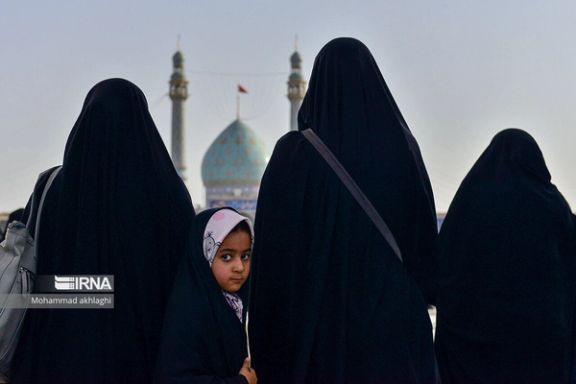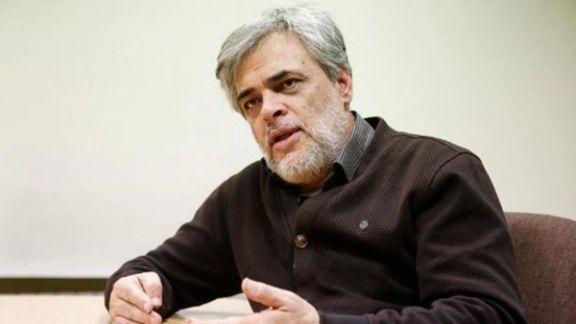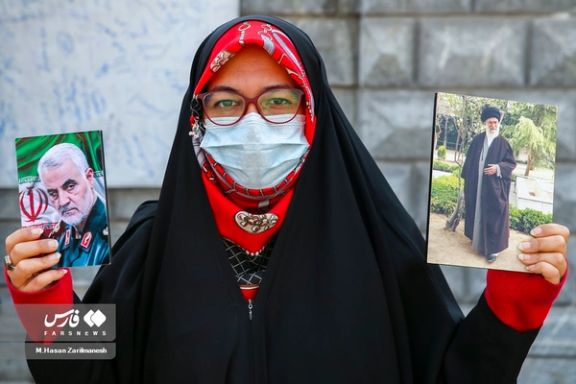Radicals In Iran Push For A ‘Real’ Islamic Government, Says Pundit

Conservative commentator Mohammad Mohajeri says supporters of the "Islamic Government" theory in Iran want to minimize elections and boost religious rule.

Conservative commentator Mohammad Mohajeri says supporters of the "Islamic Government" theory in Iran want to minimize elections and boost religious rule.
While the Islamic Republic is theoretically based on some democratic processes such as holding elections and giving the nation a voice in the parliament, the supporters of true ‘Islamic Government,’ a more radical theory, do not recognize the role of the parliament and do not believe in people's vote.
Mohajeri told the Iranian Labor News Agency (ILNA): "Those who believe in an Islamic Government do not clearly say that they do not value the people's vote because they know if the say so, the people will tear them apart."

Despite Mohajeri's statement, the main advocate of the Islamic Government theory, Ayatollah Mohammad Taqi Mesbah Yazdi has said many times that the people's vote is useless as the Supreme Leader is appointed by God Almighty and even his aides are appointed by God rather than being elected by the people.
According to Mohajeri, some allege that the founder of the Islamic Republic, Ayatollah Ruhollah Khomeini, also believed in full Islamic Government and the reason why he supported the idea of establishing an Islamic Republic was to prevent criticism from the international community.
Mohajeri added: "Although the advocates of Islamic Government refrain from openly expressing their opposition to elections, they take measures that undermine the people's vote." He explained: "They do this by changing the political situation in a way to ensure minimal turnouts in elections, so that they can further their own ideas."
Mohajeri's statement alludes to what happened in the latest parliamentary election in 2020 and the presidential election of 2021, when mostly hardliners were allowed to run. This brought an inefficient parliament and president to power, so that Supreme Leader Ali Khamenei can now dictate whatever he wants to them.
On the other hand, many key decisions about the affairs of the state are handed over to the heads of the three powers of the government, such as the decision to dramatically increase the price of fuel in 2019, and the decision about accepting the terms of the international financial watchdog, the FATF, that was handed over to the Expediency Council. The former case led to one of the biggest and bloodiest protests in Iran and the latter has left Iran's foreign trade in a state of limbo for several years now.
Even some of the decisions that are apparently made by the parliament, like the decision on the budget bill for 1400 (two years ago) were finalized according to Khamenei’s taste, by the president, speaker of parliament and the head of the judiciary.

Mohajeri's comments followed a statement by former President Mohammad Khatami who said recently that some Iranian politicians have turned to the idea of an Islamic Government rather than the Islamic Republic. Khatami however argued that what Khomeini had in mind was not the rule of clerics.
Asked to clearly name the advocates of the totalitarian Islamic Government, Mohajeri said: "A small part of radical conservatives believe in this idea," but refrained from naming any individual or group. Referring once again to the results of the latest elections in Iran, he said: "Naturally, when a majority of the people do not take part in the election, the political atmosphere will be controlled by the radicals."
With these explanations, the statement by reformist figure Mohsen Mirdamadi makes better sense. According to Rouydad24, Mirdamadi said: "Boycotting the election is not the favorite choice of political parties. But sometimes it is the only option on the table." He added: "When the reformists see that they cannot further any one of their plans by taking part in elections, they find out that their presence in the election can only lead to a decline in their social capital."